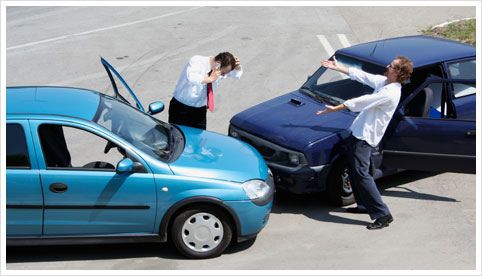Blog

Everything you need to know about commercial vehicle insurance
If you use a van for any sort of business reason, be it haulage or even commuting to a single place of work, then you will need to insure it under a commercial policy. Government data shows there are around three million light goods vehicles (LGVs) on Britain’s roads. If you intend to join them you must make sure you’re covered correctly and legally.
With different van insurance categories available, however, it might be confusing to decide which type to take out. Some LGV drivers may even have the wrong kind of insurance policy - and therefore be in breach of the law.
As with car insurance, you can reduce costs by accumulating years of safe driving. A dash-mounted camera can help with recording what happened should an accident occur, while a collision sensor could prevent one happening in the first place. (Check here for backup alarms.)
What kinds of LGV insurance are there?
You’ll recognise that LGV insurance is broadly similar to private car insurance. There are three main types: third party only; third party, fire and theft; and fully comprehensive.
The legal minimum you need to ensure your van is compliant is third party only cover. Adding fire to that gives you peace of mind if a fire damages your vehicle, while theft covers that of your vehicle itself and any personal belongings inside it. And fully comprehensive cover means that you are underwritten for damage to your vehicle regardless of whether you’re at fault.
Don’t plump for third party only assuming it is the cheapest cover by default. Policy prices can vary dramatically from provider to provide, so do shop around. Your age and that of any employee you want to allow to drive your business’s vehicles will also affect the cost of a premium. Some companies won’t insure commercial drivers under the age of 19 or 21, so you might need a re-think in some cases.
How is LGV insurance classified?
Yes, you’ll need commercial insurance if your van is integral to your work - if you’re an electrician or builder, say. But even if you happen to use a van only to drive to your place of work, commercial insurance is still needed. You’ll need to decide which of the following uses your van is required for:
- Carriage of own goods: This is for drivers who use their van to transport themselves and their tools to work each day. It’s also the type of cover needed for those simply driving their company van to a workplace and back.
- Carriage of goods for hire or reward: For vans that are used to make deliveries, this is the cover required. Some policies may also cover the goods being delivered. If not, you’ll need a ‘goods in transit’ addition to the policy, or else check to see that the goods are covered by the company you’re delivering on behalf of.
- Haulage: Similar to carriage of goods, this instead covers a van used to transport a load to a single delivery destination over a long distance. Removals firms would need this, for instance.
Check RAC.co.uk for information about insurance groupings, and if you’re insuring your car for commercial use, see GoCompare.com’s guide.



Comments